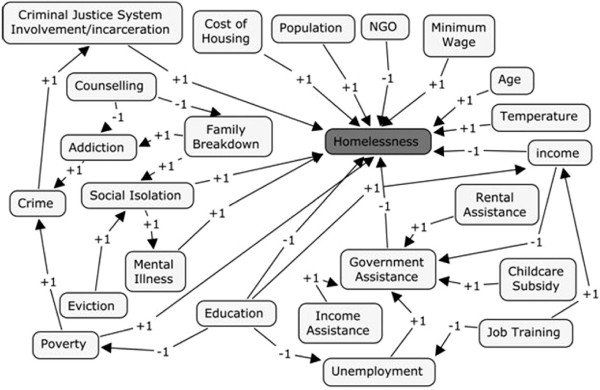The Trouble with Jesus
by Constance Hastings
The Trouble with Jesus is how he calls people to walk with him
even though there's a bad storm going on.

You know, when life is at its worst, wise ones seek shelter from the storm. Jesus, part of your problem is how you call people to walk with you right in the middle of horrible squalls, hurricanes, gale-force winds, and tempests on the sea. How are we supposed to believe that everything will turn out all right with all that going on?
Divine Turmoil
It’s understandable that Jesus would want some time alone. He’d had no real time to grieve John the Baptist’s horrific beheading by the order of Herod. The crowds would not leave him, always clamoring for healing of their bodies. Feeding more than 5000 people was a mind-blowing feat, but now it was time finally to get away.
It turned out to be his doing. Jesus didn’t want even the twelve around at that point. He was the one who’d told them to sail to the other side of the lake so he could have some solitary prayer. It sounded like a good idea at the time, but none of them could have known into what he was sending them.
Without apparent warning, the winds picked up, and waves challenged even the most seasoned sailors among them. Holding fast to the lines and praying the rudder wouldn’t snap, they knew they were in trouble. The darkness of the night swallowed up any hope of finding a shoreline. Grown men could only hunker down to wait for the storm to pass. “God, why did you let him do this to us?” went through their minds, froze their hearts, and became sobs in their throats.
Divine Calling
Then, like a specter rising from a grave, an image rose on the water. Likely, it seemed they were meeting death personified. But a voice called to them, a voice familiar and yet strange in its calmness given the howling of the wind. “It’s all right. It’s me. Don’t be afraid.” Jesus walked on the water toward them.
His best lieutenant, Peter, couldn’t believe his eyes. And then, for God only knows what reason, Peter asks, “Lord, if it’s really you, tell me to come to you by walking on water!” What in the world and all of the universe could have been going through this man’s mind? Did he think only Jesus would ask this of him? Was he under the impression if this was a delusion coming from his worst fear that he’d get no answer? Or did he think he’d entered a spiritual realm already in which the natural laws were amended? Regardless, Jesus said, “Come.” Over the side of the boat, Peter stepped.
No matter what he was thinking, Peter must have had confidence he could do it. Not the kind of confidence that comes from personal experience or witness thereof. The old rules of the sea were suspended, the waves would not sink him but bear him with sure footing, and walk on water he did.
Divine Terror
He did, that is, until he looked around. When waves taller than he were moving toward him, Jesus was obscured from his sightline, and the realization of what he was doing dissolved into terror. Peter began to sink, forgot how to swim, and shouted for Jesus to save him.
For much of Peter’s story, there is a how-not-to-follow Jesus theme. This wasn’t the first time he said a dumb thing or did a dumber thing, and it wouldn’t be his last. Forget he eventually became a hero of a movement that impacted the world in the most unlikely ways. There’s another side to his story. Yes, he was a royal screw-up for much of the time he lived with Jesus. But without his broken history, the world would not have a great example of growth and strength beyond oneself.
Peter didn’t just jump into stormy seas so he could give Jesus a wet hug. He was called, told to come into a situation no sensible person would even try. It bordered somewhere between utterly stupid and a risk only those who were adrenaline junkies would attempt. Whatever compelled him to get out of that boat took belief that there was a purpose in this life beyond himself, a purpose unknown at the time but in which he could have faith it was meant for God to know.
Except…he lost it. He lost his focus, he forgot the meaning and the calling along with the caller, he only saw the danger and felt the power that would sink him. And sure enough, he started to go down. Peter was not a pillar of faith in the moment. Yet maybe that is the most important part of his story, his moments of insight along with his worst moments of despair. Peter’s faith would not evolve into trust by intellectual assent as an untested theory. He had to come to the point of risking his faith, moving out on the water with only trust in the One who called him, to feel what it’s like to sink when distracted by the ridiculousness of the effort.
Divine Trust
Faith is not formed instantaneously, nor is it an ability given at birth, spiritual or natural. It requires a struggle of the will, fights against doubt and better judgement, often entails a battle with anxiety, and grows by risking it just for the sake of having more of it. For that target, Peter got out of the boat.
Yes, he sank, but Jesus grabbed him. He says the obvious, “You don’t have much faith. Why did you doubt me?” Don’t read that as an admonition. Both are standing on the water, the danger is gone, and it’s said as a playful jab, a teasing for this man who stepped out, sank, and now stands taller than the waves which would have drowned his soul.
Once in the boat, the winds immediately calmed. The disciples worshiped Jesus, but the miracle was not so much in wind and waves as much as in the stilling of a storm of life with expanded meaning, significance, purpose:
“Surely, you are the Son of God!” they exclaim.
Subscribe to The Trouble with Jesus Blog Here.












